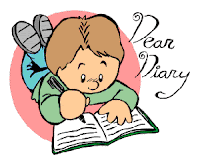Of those 307 million, I would hazard to guess that at least 150 million of them are either full time professional writers, part time professional writers, full time amateur writers, part time amateur writers, or dabblers.
There's a quote, out there somewhere in the world, from Stephen King, revealing the number of rejection letters he received before he became a published author. My memory is hazy on it, but I believe the number was up around 100. King's motivation in revealing this information was to point out that all writers, no matter how successful, will get rejected a lot.
 |
| Yes, these are all my rejection letters, minus the e-mails. |
There's certain level of sadism involved in trying to get published. If you're not famous or related to someone famous or doing a job that is incredibly unique and/or fascinating, you're going to have some troubles. Sure, there are some objective qualities to look for in writing, but in the end the majority of any decision made by someone with the power to publish your work is going to be subjective. And while all your friends and family might tell you how great you are, none of them are going to get you into the New York Times Book Review.
I have no idea how many rejection letters I've gotten. I write a decent amount in multiple genres and formats, and I've been rejected for all of them. Short stories? Check. Novel? Check. I even have rejection letters from Marvel with a picture of Spider-man on them.
I found Hellgate Press by contacting them myself, without an agent. More and more writers are doing that these days, although it would be a lie to say that having an agent isn't an advantage.
Hellgate is a medium sized publishing house in Oregon. They specialize in military history, veteran memoirs, travel adventure, and historical fiction. They were not the only publishing house that I queried on my own, but they were one of only a few. I covered the country in query letters to agents, but when it came to contacting a publisher directly, I decided to narrow the field as much as I could.
I have nothing but great things to say about Hellgate Press and I couldn't be happier that my book is going to be in their catalog next to some worthwhile titles. I'm hoping that our relationship will extend into multiple printings.
But eventually it will end, or at least slow to a drip. I'm already readying my next salvo into the literary world, but the two books I'll be shopping around don't fall into any of the genres that Hellgate publishes. So I need to start over, start fresh, and prepare for a new round of rejections.
And this is how it goes. A short story gets put into a collection and you smile and you add it to your bio, because that's all that really matters. Each new victory is just another way to pad your stats for the next fight. I will lose far, far more than I win.
Then again, I suppose that makes those few victories all the sweeter.

